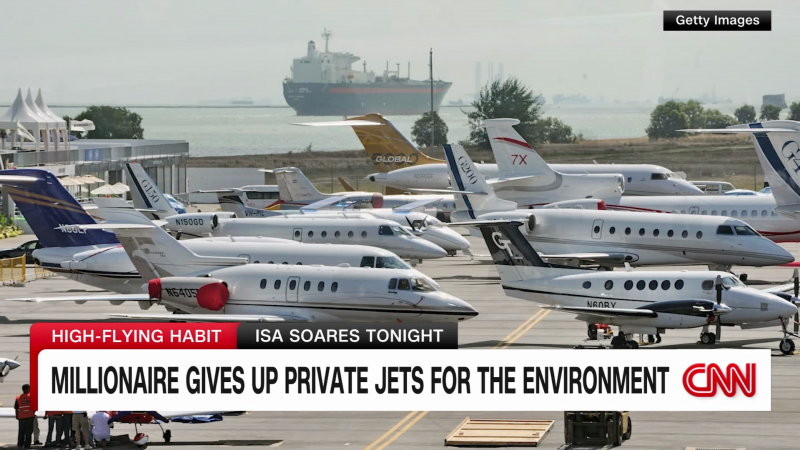In an era where global warming increasingly threatens our planet, a paradox has emerged within the celebrity culture: the disconnect between preaching sustainable living and the opulent lifestyle of flying in private jets. This phenomenon illustrates a critical aspect of public hypocrisy. Can one legitimately advocate for environmental conservation while simultaneously indulging in a mode of transport that emits significantly higher carbon footprints than commercial flights? This conundrum is particularly provocative considering the omnipresent clarion call for climate action from numerous high-profile figures.
The allure of private jets remains undeniable. They offer unparalleled convenience, luxury, and oftentimes, the allure of escaping the prying eyes of the general public. However, when numerous celebrities and influential personalities publicly endorse measures to mitigate climate change, the juxtaposition of their lifestyle choices raises profound questions about authenticity and accountability.
One compelling example is the wave of vocal advocates for environmental justice who are also frequent flyers in their personally chartered aircraft. Celebrities like Leonardo DiCaprio, who ardently promotes sustainability through his foundation, has come under scrutiny for his jet-setting habits. Despite his genuine contributions to environmental causes, the ironic contrast creates a sense of cognitive dissonance among his fanbase and beyond. It prompts an essential inquiry: Can one truly embody the principles of climate advocacy while participating in activities that exacerbate the environmental crisis?
Additionally, the phenomenon of “carbon offsetting” has emerged as a popular, albeit controversial, solution among the elite. Celebrities often argue that they can balance their carbon footprint by investing in renewable energy projects or planting trees. While well-intentioned in theory, this practice has drawn criticism for potentially allowing individuals to compartmentalize their detrimental impacts while failing to confront the underlying issues associated with their extravagant lifestyles.
Furthermore, one must consider the broader implications of public figures perpetuating such behavior. The precedent set by celebrities habitually flying private jets can propagate a culture of entitlement and complacency towards climate action among their admirers. If those who possess significant influence over public sentiment partake in environmentally harmful activities, does that not dilute the urgency of their messages regarding sustainability?
This leads to a deeper examination of the norms and values promoted by societal role models. Environmentalism has become a popular cause, allowing individuals to align their identities with the moral high ground of climate activism. Nevertheless, when this discourse collides with the reality of extravagant consumption, it raises critical concerns regarding integrity. The challenge posed by this situation is both individual and collective: how can society reconcile the admirable pursuit of global sustainability with the reality of excessive consumption habits prevalent among its most prominent figures?
When prominent individuals advocate for measures such as reducing plastic use, adopting a plant-based diet, or supporting renewable energy initiatives, it is indeed commendable. However, these messaging campaigns can seem incongruous when juxtaposed with their personal indulgences in a private aircraft that can emit up to 14 times the CO2 per passenger compared to commercial flights. This raises the question: Are celebrities inadvertently undermining their ability to effect change in the climate discourse? Can we truly call for reform in a system that we simultaneously benefit from, thereby perpetuating the status quo of consumption?
The perceived double standards often lead to disillusionment among the public who may feel that the fight against climate change is less about personal responsibility and more about public perception. When celebrities are examined under the lens of hypocrisy, their credibility as climate advocates may wane. Thus, it warrants a call to action: a reevaluation of priorities targeting lifestyle choices, transparency in climate activism, and bolstering effective commitments that align with the environmental ethos they espouse.
This very dilemma poses a significant challenge to the narrative of climate activism. It becomes essential for individuals, both public and private, to engage in a more honest discourse about their contributions to global warming. By taking the time to reflect on personal choices and public commitments, they can augment genuine efforts to bring about sustainable change. Transitioning towards lower-carbon alternatives and considering the repercussions of lavish lifestyles on the environment are viable paths forward that transcend mere rhetoric.
In conclusion, the juxtaposition of advocating for environmental change while simultaneously indulging in the luxury of private jets reveals a potent hypocrisy in celebrity culture. The challenge lies in reconciling these conflicting narratives and embracing authenticity in the climate discourse. As the world moves closer to facing severe consequences of climate change, it becomes critical for those with a platform to lead by example. The path toward genuine environmental stewardship requires accountability, transparency, and a commitment to collectively reduce our carbon footprints, starting at the apex of influence.
Ultimately, the shift from indulgence to sustainable practices may well catalyze a more unified, committed approach toward addressing climate change. Can public figures transform their messaging to align their actions with their words? The answer to this question may shape the trajectory of the environmental movement for years to come.








